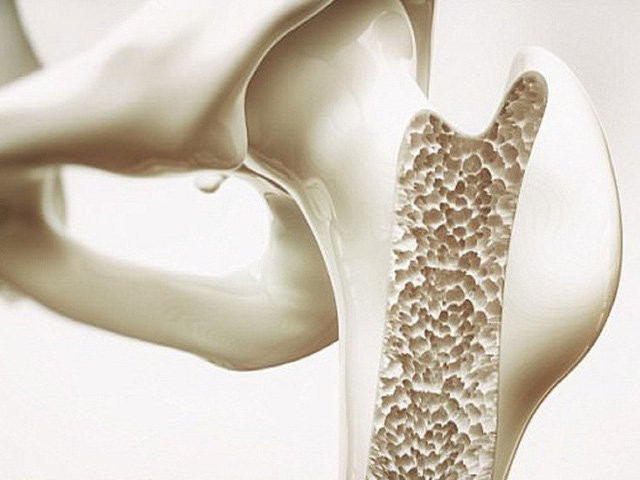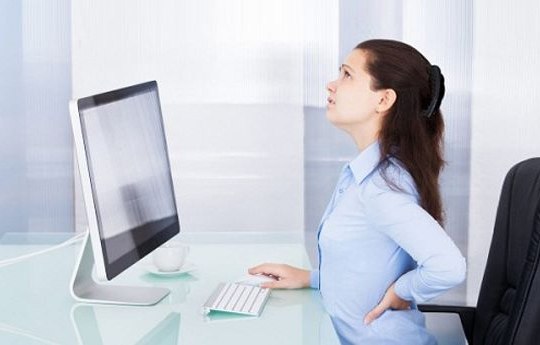“The Fastest Way to Death” for This Reason
According to experts, people who sit a lot and move little have a higher risk of herniated discs. We do not know that when lying down, spinal pressure increases 4 times, when sitting, spinal pressure increases 6 times.
So people who sit a lot are like "the closest way to death". So, is sitting a lot and not moving much really that scary?
Medical experts will point out the harmful effects of sitting for long periods of time on health.
1. Have heart disease
When you sit, your muscles burn relatively little fat, and your blood flow slows down, making it easier for fatty acids to clog blood vessels that flow to your heart. Sitting too much is associated with high blood pressure and high cholesterol. In particular, sedentary people are twice as likely to develop heart disease as normal people.
2. Overactive pancreas
The pancreas produces insulin, a hormone that carries glucose to cells for energy. But when you sit for a long time, your muscles don't respond to insulin, so your pancreas produces too much insulin, which can lead to diabetes or other diseases. A 2011 study found that just one day of sitting can reduce muscle response to insulin.
|
Since 1994, the World Health Organization has stated that sitting too much and being sedentary are the leading risk factors leading to chronic diseases. |
3. Causes colorectal cancer
Research has linked sitting to colon, breast, and endometrial cancers. The exact cause is unknown, but one theory is that high insulin levels can cause colorectal cancer. Regular activity also increases natural antioxidants that help fight free radicals.
4. Causes belly fat
When you stand, move or sit, your abdominal muscles are engaged and toned. But when you sit in a chair for too long, your abdominal muscles are not engaged. At this time, the back muscles are stretched and the abdominal muscles are flabby, forming a destructive alliance that makes your waist too big due to fat accumulation in the abdominal cavity.
5. Causes stiff hips
The flexible hip joint helps maintain balance, but people who sit for long periods of time rarely extend their hips forward, causing the muscles to become loose and stiff, limiting their range of motion and stride length. Research shows that reduced hip mobility is a major reason why older adults are prone to falls.
6. Paralysis of the buttocks
When sitting for a long time, the flexor muscles around the hips are tightened, while the gluteal muscles are stretched to create balance. If sitting for too long, the muscles will be stretched to the maximum and cannot contract anymore, leading to a state of paralysis of the muscles around the buttocks and not being able to flex as quickly as before.
7. Causes blood circulation disorders in the legs
Poor circulation in the legs, sitting for long periods of time will slow blood circulation, causing fluid to accumulate in the legs. From swollen ankles and varicose veins to dangerous blood clots, these problems form deep vein thrombosis.
8. Osteoporosis
Walking and jogging are both weight-bearing activities that should promote the development of high bone density in the hips and lower body. Scientists have recently shown that osteoporosis is caused by a lack of physical activity in people with the disease.
Sitting for long periods and mortality: an eight and a half year study showed that people who watched TV for more than seven hours a day had a 61% higher risk of early death than those who watched TV for less than one hour a day.
9. The brain becomes sluggish
When the muscles are active, it helps ensure the brain has enough blood and oxygen, and it also helps to activate chemicals that affect the brain and mood. When we sit for a long time, the brain's function slows down and becomes less flexible.
10. Stiff neck
If you spend most of your time sitting at a desk and arching your neck towards the keyboard to type, or tilting your head and shrugging your shoulders to answer the phone, if this continues for a long time, your cervical spine will become permanently unbalanced.
11. Back pain
When you sit for too long, the spine plays a supporting role to keep the back straight. This condition lasts for a long time, causing the back to become "tired" and overloaded, leading to pain. This is the reason why you have back pain or lower back pain.
|
Sitting for long periods and mortality: an eight and a half year study showed that people who watched TV for more than seven hours a day had a 61% higher risk of early death than those who watched TV for less than one hour a day. |
12. Herniated disc
Therefore, sitting in the wrong posture puts a burden on the spine.
Sitting for long periods of time causes the disc between two vertebrae to be compressed frequently, thus not absorbing nutrients, leading to disc degeneration.
How to reduce the health effects of sitting for long periods without exercise?
When sitting, pay attention to the correct sitting posture, sit up straight, you can put a thin pillow behind your back, occasionally stand up and walk around to relax your joints and muscles.
Exercise regularly, maybe walking, or light exercises to move the whole body, burn calories, and prevent muscle stiffness that affects health.
When you get home, you should avoid sitting in one place for too long, limit watching TV, playing games, playing with your phone, etc. You can clean the house, go for a walk, cook, etc. to help relax your mind.
Experts also recommend that you should not sit for too long, about 3 hours continuously every day. Create healthy habits and a scientific diet for a healthier body.




